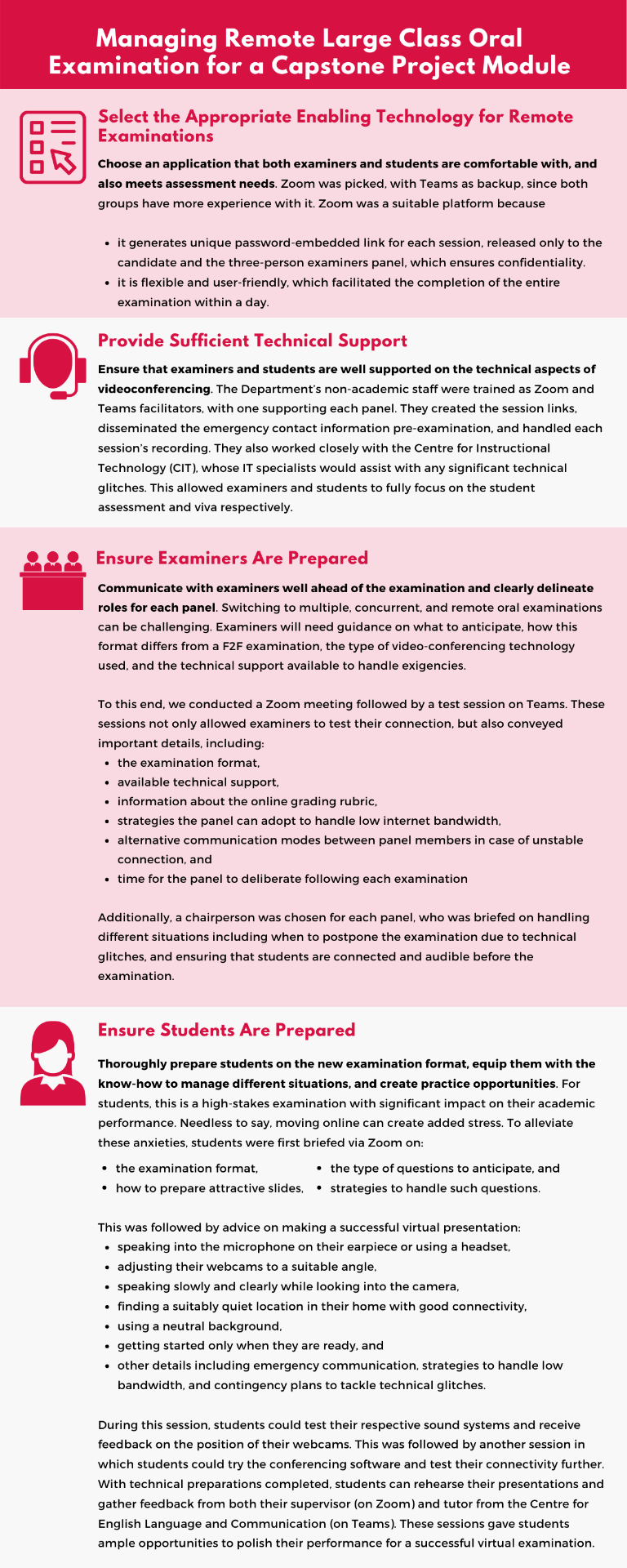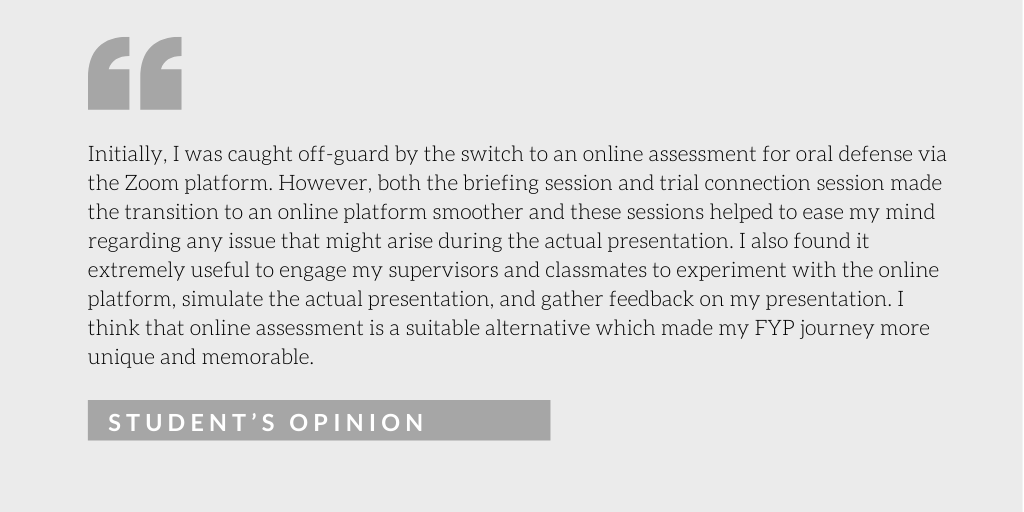ONG Pei Shi
Department of Pharmacy, Faculty of Science (FoS)
Pei Shi shares the process involved in preparing her students and colleagues to participate in a large-scale remote oral examination for a capstone research module.

At NUS, the unprecedented COVID-19 pandemic has upended face-to-face (F2F) classes, written and oral examinations as social distancing and other measures kicked in to curb its spread on campus. As educators, we had to act quickly and re-think how we ensure learning continuity in a remote, online setting. Thankfully, years of e-learning and flipped classroom teaching have given me a head start when it comes to remote teaching. After doing some quick upskilling of my digital literacy to encompass video conferencing platforms such as Zoom and Microsoft Teams, I could reposition my classes online smoothly while preserving their interactive components.
In contrast, as module coordinator of a final-year pharmacy capstone research module, where we employ F2F oral examinations to assess students’ knowledge of their thesis research, ability to critically think and communicate their findings, it was more challenging to make a quick transition online in order to assess a hundred-strong student cohort within a day. Let me share insights into how I navigated the execution of this large-scale, remote oral examination.

Were All These Extensive Preparations and Coordination Worthwhile?
Definitely! We successfully completed eighty-eight sessions with minor technical issues. Feedback from students and staff were largely positive:
More importantly, this demonstrates that such oral examinations are scalable virtually while preserving its authenticity and intended higher-order learning outcomes. It is certainly a viable option during such uncertain times. At present, remote, large-scale oral examinations are less commonly used for non-capstone project modules. Its effectiveness as an efficient and engaging assessment format, shown here and reported by others (Okada, 2015; Kang et al., 2019), together with its ability to promote academic integrity (Sotiriadou, 2019), suggests that we can explore this approach further as an alternative assessment format for non-capstone project modules.
 |
ONG Pei Shi is a Senior Lecturer with the Department of Pharmacy. She firmly believes that learning and assessment, when re-imagined with evidence-based approaches and enabled using technology, can help to create a community of learners that are better critical thinkers and problem solvers. Her latest educational endeavour involves the development of an autograder cum peer review system to support students’ learning of pharmacy practice. Pei Shi can be reached at phaops@nus.edu.sg. |
References
Okada, A. (2015). Effective web videoconferencing for proctoring online oral exams: a case study at scale in Brazil. Open Praxis International Journal 7(3), 227-242. https://doi.org/10.5944/openpraxis.7.3.215
Kang, D., Goico, S., Ghanbari, S., Bennallack, K. C., Pontes, T., O’Brien, D. H., & Hargis, J. (2019). Providing an oral examination as an authentic assessment in a large section, undergraduate diversity class. International Journal for the Scholarship of Teaching and Learning 13(2), Article 10. https://doi.org/10.20429/ijsotl.2019.130210
Sotiriadou, P. (2019). The role of authentic assessment to preserve academic integrity and promote skill development and employability. Studies in Higher Education http://dx.doi.org/10.1080/03075079.2019.1582015/



